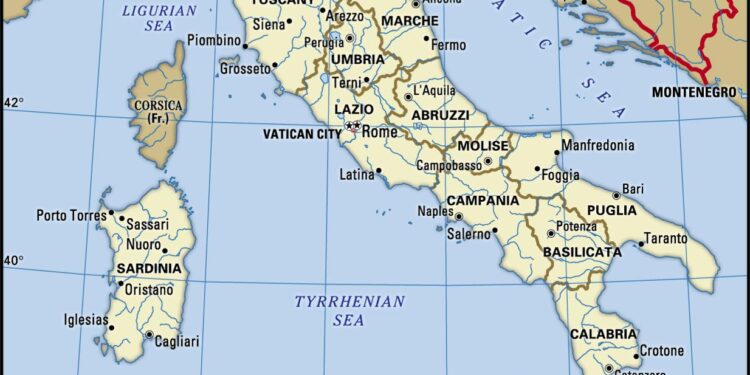Italy is set to introduce a new levy targeting Chinese fast fashion imports in a bid to safeguard its struggling local textile and garment industry, Reuters reports. The proposed measure aims to address unfair competition from low-cost foreign producers and revive domestic manufacturing amid growing concerns over market imbalances. As global trade tensions rise, Italy’s move highlights the challenges European industries face in competing with rapidly expanding overseas fast fashion brands.
Italy Proposes Import Levy Targeting Chinese Fast Fashion to Shield Domestic Manufacturers
Italy’s latest trade move aims to curb the influx of inexpensive Chinese fast fashion products flooding the domestic market. The proposed import levy, announced by government officials, is designed to offer much-needed relief to local manufacturers struggling to compete with the price-driven imports. By imposing additional tariffs, Italy hopes to restore market balance, encourage sustainable production, and safeguard thousands of jobs within its traditional textile and apparel sectors.
Industry experts suggest that this measure could reshape the competitive landscape by:
- Enhancing the viability of small and medium-sized Italian fashion firms.
- Promoting higher standards in quality and ethical production.
- Encouraging investments in innovation and design excellence.
| Impact Area | Expected Outcome |
|---|---|
| Domestic Brands | Increased sales and market share |
| Consumers | Potential price adjustments, higher quality |
| Chinese Exports | Reduced volume, increased costs |
Economic Impact and Industry Reactions to Italy’s Proposed Trade Measure
The Italian government’s proposal to impose a levy on Chinese fast fashion imports has sparked widespread debate across European markets. Economists predict that while the measure aims to shield domestic manufacturers from undercutting prices, it could also lead to increased costs for consumers and potential trade tensions between Italy and China. Industry experts warn that the tariff might disrupt supply chains, forcing retailers to reconsider their sourcing strategies. Moreover, the measure could set a precedent for other EU countries contemplating similar protectionist policies, potentially reshaping the regional trade landscape.
Reactions from key stakeholders within Italy’s fashion and textile sectors have been mixed. Local producers have largely welcomed the initiative, highlighting its potential to revitalize small and medium-sized enterprises that have struggled against international competition. Conversely, large retail chains and importers caution against possible supply shortages and price hikes. Below is a summary of the main industry sentiments:
- Local Manufacturers: Supportive, citing job preservation and economic growth
- Retail Chains: Concerned about increased operational costs and consumer backlash
- Trade Associations: Call for balanced measures to avoid disrupting EU-China relations
- Consumer Groups: Wary of price inflation on affordable fashion items
| Sector | Expected Impact | Key Concern |
|---|---|---|
| Textile Manufacturers | Positive growth potential | Protecting domestic jobs |
| Retailers | Higher procurement costs | Maintaining consumer base |
| Consumers | Possible price increases | Affordability of fashion |
Experts Urge Strategic Support for Local Brands Amid Rising Competition from China
Industry leaders emphasize the urgent need for targeted policies that bolster Italy’s homegrown fashion labels in the face of growing imports from Chinese fast fashion brands. They argue that without strategic interventions, domestic designers risk losing market share due to price undercutting and rapid production cycles deployed by their foreign counterparts. The proposed levy, aimed specifically at Chinese fast fashion imports, is viewed as a critical step to level the playing field, ensuring local craftsmanship and sustainable practices remain competitive.
Experts highlight key measures to support Italian brands:
- Implementation of tariffs targeting low-cost, high-volume imports
- Increased investment in innovation and sustainable textile technologies
- Strengthening of “Made in Italy” certification protocols
- Incentives for small and medium enterprises to expand export capabilities
| Support Area | Expected Impact |
|---|---|
| Levy on Imported Fast Fashion | Reduced price disadvantage for local brands |
| Innovation Grants | Enhanced design & sustainability |
| Certification Strengthening | Boosted consumer trust |
| Export Incentives | Expanded global reach |
Wrapping Up
As Italy moves forward with its proposed levy on Chinese fast fashion imports, the move signals a broader effort to safeguard domestic manufacturers amid growing global competition. Observers will be closely watching how this policy affects trade dynamics and whether it prompts similar measures across Europe. The initiative underscores the ongoing tension between protecting local industries and navigating the complexities of international commerce.
















